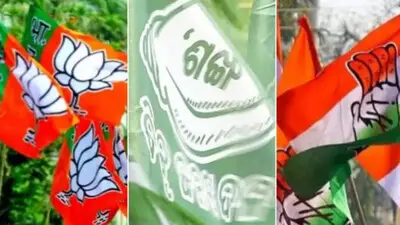Recommended Stories
Bhubaneswar: The State government today banned the sale of seven variants of Maggi noodles with immediate effect after lab report confirmed the presence of monosodium glutamate (MSG) higher than permissible limits in them.
Announcing the decision, Health and Family Welfare minister Atanu Sabyasachi Nayak told the media here that Nestle India, manufacturer of the products, has been asked to withdraw the food items from the State forthwith.
“The test of Maggi samples, conducted by the State government at the Central Food Laboratory in Pune, has confirmed that the quantum of MSG content in the noodles variants of Nestle is higher than the standard set by Food Safety and Standards Authority of India (FSSAI),” said Nayak.
Moreover, the Health minister said that all the district collectors have been instructed to strictly enforce the ban on Maggi products in their respective jurisdiction as FSSAI has specified that higher content of MSG than permitted in any food product is highly detrimental to the health.
After ordering the recall of Maggi noodles, the food safety watchdog today said it will not only test the samples of other instant noodle brands, including the imported ones, but also extend such checks to pastas like macaroni.
"Overseas and local manufacturers would be treated equally. More noodle brands including pasta and macaroni products will also start getting tested this week," FSSAI chief executive Yudhvir Singh Malik said in New Delhi.
However, he clarified that it is not considering action against Maggi brand ambassadors for the time being. "As of now, we are not considering any action against the brand ambassadors associated with the Nestle's Maggi noodles," Malik added.
Following tests on some samples of Maggi, the watchdog on Friday had ordered the recall of all the nine variants of Maggi pan-India and had asked Nestle to halt its production and exports. It had also issued a similar order on Nestle's oats noodles and tastemaker.
While Nestle continued to contend that its noodles were safe for human and that the levels of lead were within permissible limits – as opposed to the findings of some tests that purportedly indicated otherwise – several States also became pro-active by issuing their own ban orders.
Malik also detailed the process involved in the recall of food products. "Ideally, consumers should be able to return the product at the retail outlet and get their money back if they have the bill with them. It is also Nestle's responsibility to let the consumers return their products, if they have kept the bill with them," he said.
The regulator also plans to post a list of all approved noodle products on its website and advise the State authorities to test them. "We understand Delhi, Gujarat and Tamil Nadu have already started testing other brands. We will list all the approved noodle products soon."
He further said that Nestle had been asked to give the regulator an update on compliance first after three days and then regularly until the end. "Because we understand that it could take 10 days or more, we will be taking regular progress reports from the company," he added.












